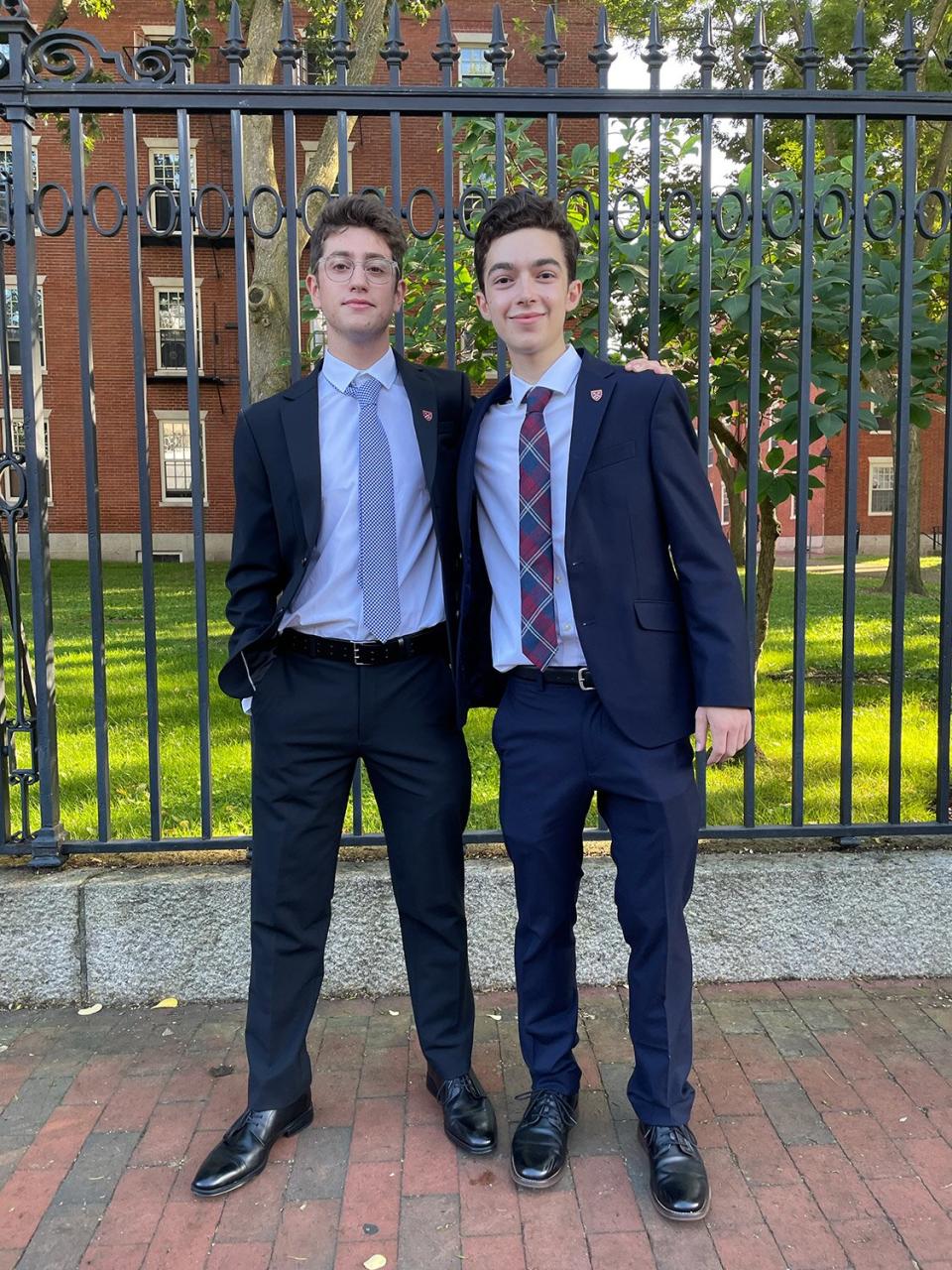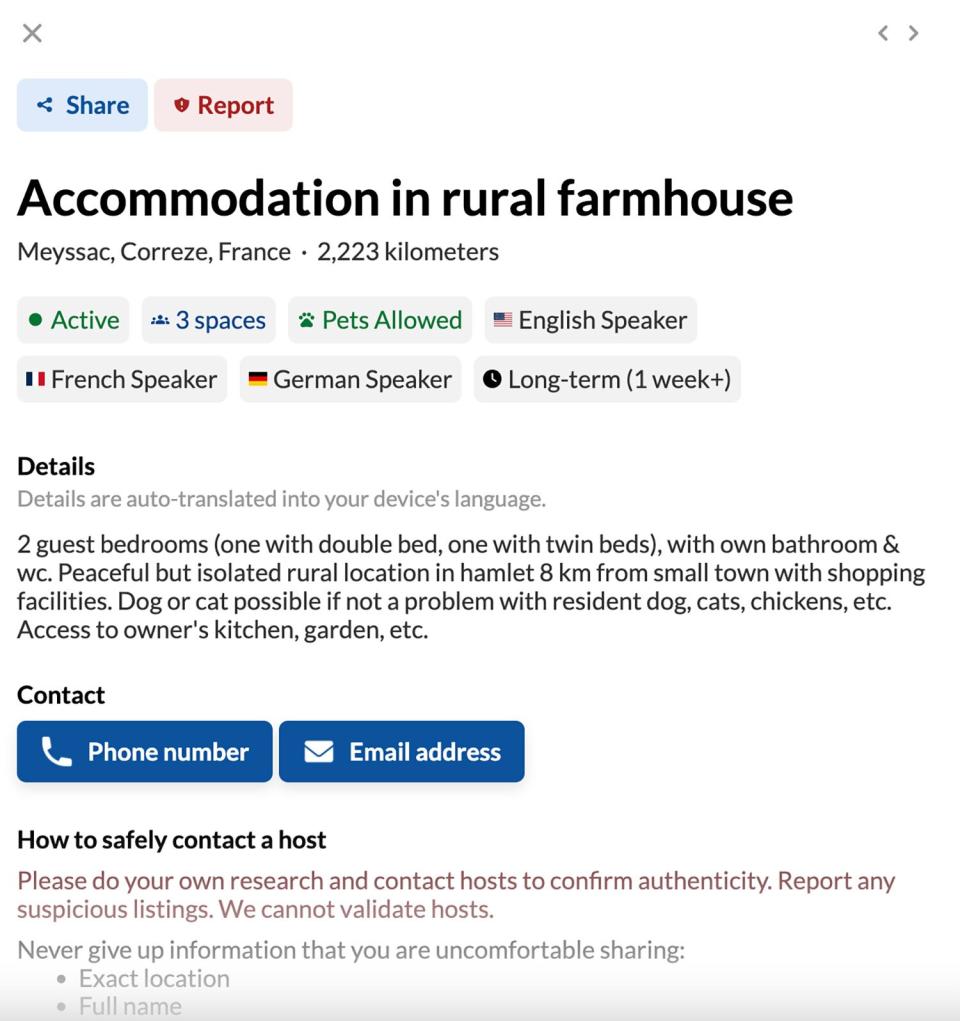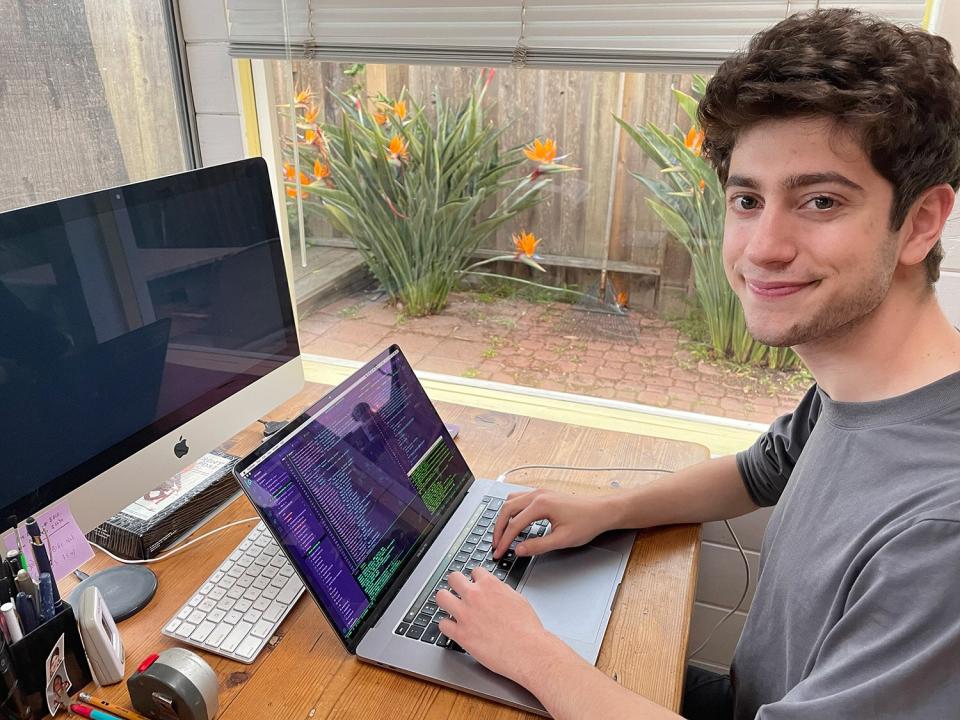Two Harvard Teens Create Website to Help Ukrainian Refugees Find Free Housing

courtesy Avi Schiffmann Avi Schiffman and Marco Burstein
Avi Schiffmann was almost ready for bed the night of Feb. 28, hours after he attended a protest against Russia's invasion of Ukraine.
He was thinking of the thousands of refugees fleeing their country, and he wanted to help. So the Harvard University freshman and computer whiz sent out the following tweet:
"A cool idea would be to set up a website to match Ukrainian refugees to hosts in neighboring countries."
The response was immediate. "People were like, 'Wow, what a great idea, you should do this,'' Schiffmann, 19, tells PEOPLE, "and I was like, 'Huh, maybe I should do this.' "
RELATED: Musician Who Escaped the War Releases Benefit Song for Ukraine Recorded with Russian Orchestra
a cool idea would be to set up a website to match Ukrainian refugees to hosts in neighboring countries
— Avi Schiffmann 🇺🇦 (@AviSchiffmann) February 28, 2022
By morning, Schiffmann, visiting a friend in San Diego at the time, contacted Harvard pal and fellow coding expert Marco Burstein for help, he says.
"We started talking about the idea and my response was basically, 'I'm in.' From that point on, we basically worked on it nonstop for about three days," says Burstein, an 18-year-old freshman from Los Angeles. "We basically didn't sleep."
On March 2 the pair launched Ukraine Take Shelter, where refugees from the war can immediately find hosts with accommodations of all sorts, many accepting family pets.
RELATED: Ukraine Paralympic Committee on Athletes Overcoming Tearful, Sleepless Nights to Win Record Medals
"We've got everything from an extra couch someone might have to a spacious barn that could fit three families to an entire university with extra dorms," says Schiffmann. "Anything really."
Most are in European countries but listings span the globe, the pair say.
"It's like a public bulletin," Schiffmann says, "like a slimmed-down version of Airbnb, focused on Ukrainian refugees."
As of Friday, there were more than 25,000 active host listings on the website and volunteers have translated it into over a dozen languages. "It's incredible," says Burstein, "to see how many people are willing to help and willing to contribute."
The site's success has brought scrutiny, including from those who say it didn't have robust security and verification procedures in place. Others argued that people wanting to give back would be better contributing to on-the-ground aid groups.
Earlier this week, Schiffmann announced that the site was rolling out new features including requiring copies of ID that were cross-checked for their validity. (Some data security advocates responded by saying the new features, while laudable, raised further questions about how the sensitive information was being stored by Ukraine Take Shelter.)
The site also provides guidelines and warnings for users who are considering contacting various hosts.
In response to the questions and criticism his site has faced, Schiffmann tells PEOPLE, "We added more protections to the host sign up process. I've been working closely with many aid groups since the start on this project to work on features like this."

A current listing on Ukraine Take Shelter
While Burstein and Schiffmann say they don't have exact figures on how many refugees have found housing, because people don't have to sign up to use the website's services, they estimate they've helped hundreds, possibly even thousands — deduced from the number of listings that hosts have removed once spaces have apparently been filled.
"I've gotten messages from hosts talking about them accepting refugees in everywhere from Sweden to Seattle, everywhere," says Schiffmann.
One family-of-six the pair's site helped was hiding out in their Kharkiv basement while city was under attack, according to the BBC.
The family used Ukraine Take Shelter, the network reported, to connect with a British woman who then raised funds to fly them — after they first escaped to Hungary — to her French country home.
"Seeing how it's helped so many people and receiving messages from hosts and refugees has been really incredible," Burstein tells PEOPLE. "We've been really inspired by what we've seen from people all over."
RELATED VIDEO: 2 Ukrainian Children Who Fled Russian Invasion Receive Special Welcome at New School in Italy

courtesy Avi Schiffmann Avi Schiffmann
More than 3 million refugees, mostly women and children, have fled Ukraine since the Russian invasion began Feb. 24, according to the United Nations. Two-thirds of those people entered Poland, with 300,000 continuing their voyage to countries in Western Europe.
Schiffmann is now taking the semester off and has put other projects aside to devote almost all of his time with the site, he says.
Coding since elementary school, in late 2019 he launched one of the first and largest websites in the world to track the spread of the novel coronavirus, ncov2019.live, earning him a Webby Person of the Year award in 2020, presented by Dr. Anthony Fauci.
He and Burstein became fast friends at the start of freshman year after Burstein created a website for Harvard students to see which friends are in their classes.
Despite sleep-deprived nights, and with Burstein juggling the site with a full course load, the pair say they remain committed — and are working on expanding the site's reach by developing partnerships with aid organizations to help provide food, jobs and transportation.
"We've seen how people from all over the world, every walk of life, are trying to help," says Burstein, "and that's a great source of hope and inspiration for us."
The Russian attack on Ukraine is an evolving story, with information changing quickly. Follow PEOPLE's complete coverage of the war here, including stories from citizens on the ground and ways to help.

 Yahoo Sport
Yahoo Sport 





































